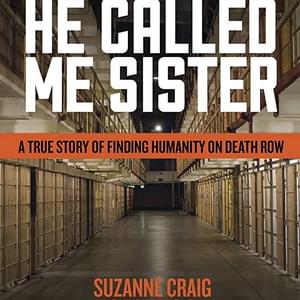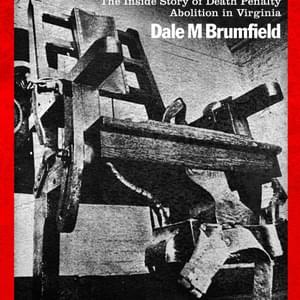The book In Sweet Company: Conversations With Extraordinary Women About Living a Spiritual Life by Margaret Wolff features Sister Helen Prejean as one of 14 women whose spiritual beliefs have served as the compass for their decision-making and life’s work. Prejean, author of the Pulitzer Prize-nominated book “Dead Man Walking” and the newly released “The Death of Innocents: An Eyewitness Account of Wrongful Executions,” has been an advisor to those on death row and an advocate against the death penalty for more than two decades. Wolff’s book notes that Sister Helen’s “Dead Man Walking” catalyzed advocates on both sides of America’s capital punishment debate. “In Sweet Company” features an in-depth interview with Sister Helen, including the following:
“If you’re not meeting people who are different than you are, you will believe every stereotypical thing you hear about them.”
You write frankly about the appalling conditions in the prisons, the inequities in the criminal justice system, the sorrow and rage of the victims’ families, the humiliation of the prisoners’ families and the terror of the men you walk to their death. What sustains you in the face of such violence and despair? How do you keep from getting pulled down by it?
She looks me square in the eyes. “It goes back to the ability to be present with people. When I accompany these inmates to their death, I leave myself — even my fear — behind. I’m totally focused on them. It’s the same thing when I sit with the victims’ families. I’m not thinking about myself at all.
“Each person I’m with needs something different and I have to be attentive to what that is. Dobie, the last man I accompanied to execution, needed me to be his coach. He was very scared. In those last hours of his life, I said things to him like, ‘Dobie you’re about to do the bravest thing you’ve ever done. Jesus is here with you and you will have all you need to get through. I’m here with you, too.’ I took him moment by moment to his death, keeping him focused in the present every step along the way.
“After an execution, I thaw out. That’s when I get in touch with the horror of it all. But when it’s happening, I’m so drawn out of myself that I don’t feel my own feelings. Each time, I seem to be moving in a circle of light. God’s grace is there. Strength is there. I have what I need to do what I must do.”
I start to commend her courage, but she holds her hand up and stops my words in mid air. “I never use that word about myself. I’m only doing what love requires. Love dignifies people. It’s not a time to be silent. Execution is such a shameful, stigmatizing thing. The message these men get is that they are disposable human waste, human trash. I don’t intrude, but I do provide a presence that’s there as they need me. Love carries me through. That’s what sustains me.”
Is this something you consciously think about doing or is it something you move into? “I move into it. Having walked with five inmates to their execution, I now know what to expect. There’s a readiness in me to move into that circle of light. It’s unlike anything I experience anywhere else. Time absolutely stops and yet it absolutely races.”
The book features 13 other women who range from 31 to 91 years of age, and who come from Buddhist, Christian, Jewish, Hindu, and Native American traditions. (The except featured in this item was taken from IN SWEET COMPANY: CONVERSATIONS WITH EXTRAORDINARY WOMEN ABOUT LIVING A SPIRITUAL LIFE, by Margaret Wolff. All rights are reserved.) Read more about “In Sweet Company.” See Books.
Books
Apr 13, 2023

BOOKS: “He Called Me Sister: A True Story of Finding Humanity on Death Row”
Books
Sep 14, 2022



